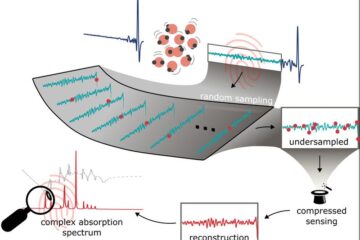Here comes the sun to lower your blood pressure

Research carried out at the Universities of Southampton and Edinburgh shows that sunlight alters levels of the small messenger molecule, nitric oxide (NO) in the skin and blood, reducing blood pressure.
Martin Feelisch, Professor of Experimental Medicine and Integrative Biology at the University of Southampton, comments: “NO along with its breakdown products, known to be abundant in skin, is involved in the regulation of blood pressure. When exposed to sunlight, small amounts of NO are transferred from the skin to the circulation, lowering blood vessel tone; as blood pressure drops, so does the risk of heart attack and stroke.”
While limiting sunlight exposure is important to prevent skin cancer, the authors of the study, including Dr Richard Weller of the University of Edinburgh, suggest that minimising exposure may be disadvantageous by increasing the risk of prevalent conditions related to cardiovascular disease.
Cardiovascular disease, often associated with high blood pressure, accounts for 30 per cent of deaths globally each year. Blood pressure and cardiovascular disease are known to vary according to season and latitude, with higher levels observed in winter and in countries further from the equator, where ultraviolet radiation from the sun is lower.
During the study, the skin of 24 healthy individuals was exposed to ultraviolet (UVA) light from tanning lamps for two sessions of 20 minutes each. In one session, the volunteers were exposed to both the UVA rays and the heat of the lamps. In another, the UV rays were blocked so that only the heat of the lamps affected the skin.
The results suggest that UVA exposure dilates blood vessels, significantly lowers blood pressure, and alters NO metabolite levels in the circulation, without changing vitamin D levels. Further experiments indicate that pre-formed stores of NO in the upper skin layers are involved in mediating these effects. The data are consistent with the seasonal variation of blood pressure and cardiovascular risk at temperate latitudes.
Professor Feelisch adds: “These results are significant to the ongoing debate about potential health benefits of sunlight and the role of Vitamin D in this process. It may be an opportune time to reassess the risks and benefits of sunlight for human health and to take a fresh look at current public health advice. Avoiding excess sunlight exposure is critical to prevent skin cancer, but not being exposed to it at all, out of fear or as a result of a certain lifestyle, could increase the risk of cardiovascular disease. Perhaps with the exception of bone health, the effects of oral vitamin D supplementation have been disappointing.
“We believe that NO from the skin is an important, so far overlooked contributor to cardiovascular health. In future studies we intend to test whether the effects hold true in a more chronic setting and identify new nutritional strategies targeted at maximizing the skin's ability to store NO and deliver it to the circulation more efficiently.”
Media Contact
More Information:
http://www.soton.ac.ukAll latest news from the category: Health and Medicine
This subject area encompasses research and studies in the field of human medicine.
Among the wide-ranging list of topics covered here are anesthesiology, anatomy, surgery, human genetics, hygiene and environmental medicine, internal medicine, neurology, pharmacology, physiology, urology and dental medicine.
Newest articles

Molecular Fingerprint Beyond the Nyquist Frequency
Ultrafast laser spectroscopy allows the ascertainment of dynamics over extremely short time scales, making it a very useful tool in many scientific and industrial applications. A major disadvantage is the…

High-energy-density aqueous battery based on halogen multi-electron transfer
Traditional non-aqueous lithium-ion batteries have a high energy density, but their safety is compromised due to the flammable organic electrolytes they utilize. Aqueous batteries use water as the solvent for…

First-ever combined heart pump and pig kidney transplant
…gives new hope to patient with terminal illness. Surgeons at NYU Langone Health performed the first-ever combined mechanical heart pump and gene-edited pig kidney transplant surgery in a 54-year-old woman…





















